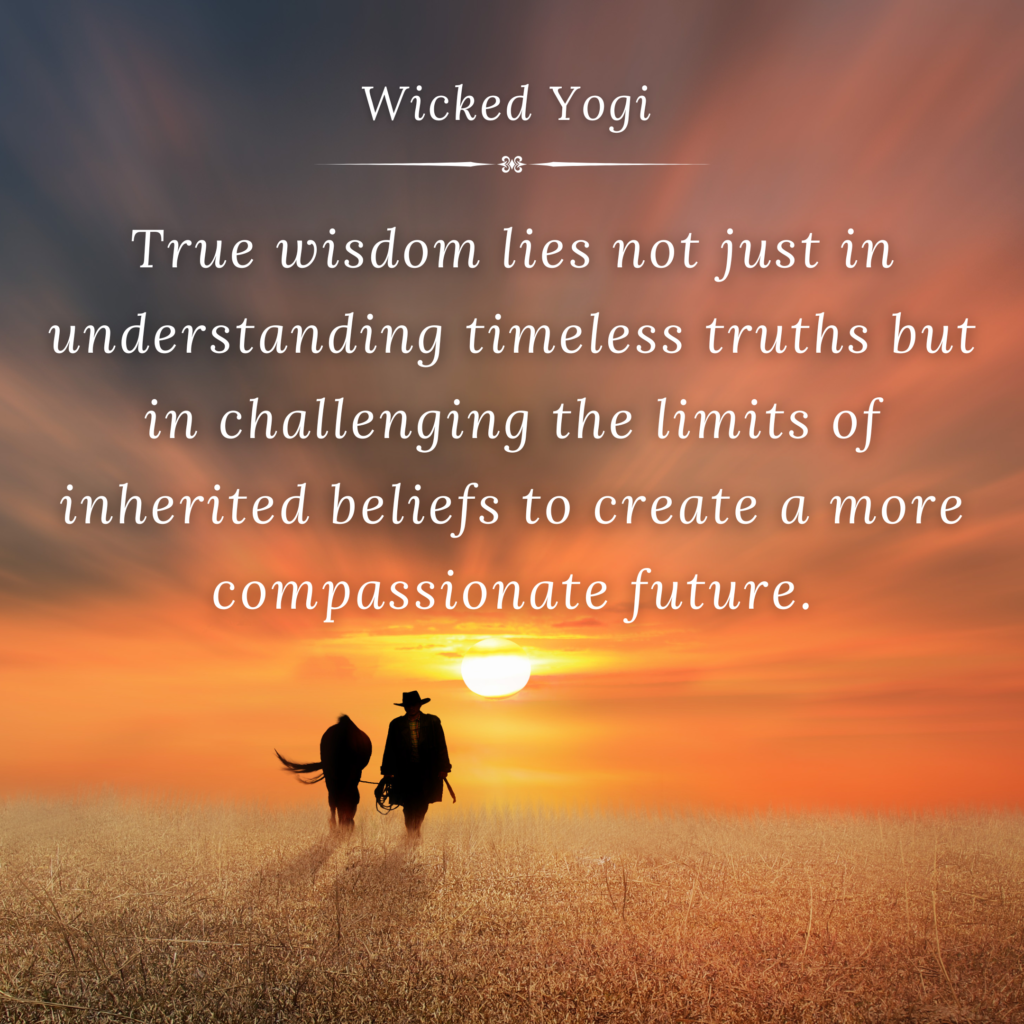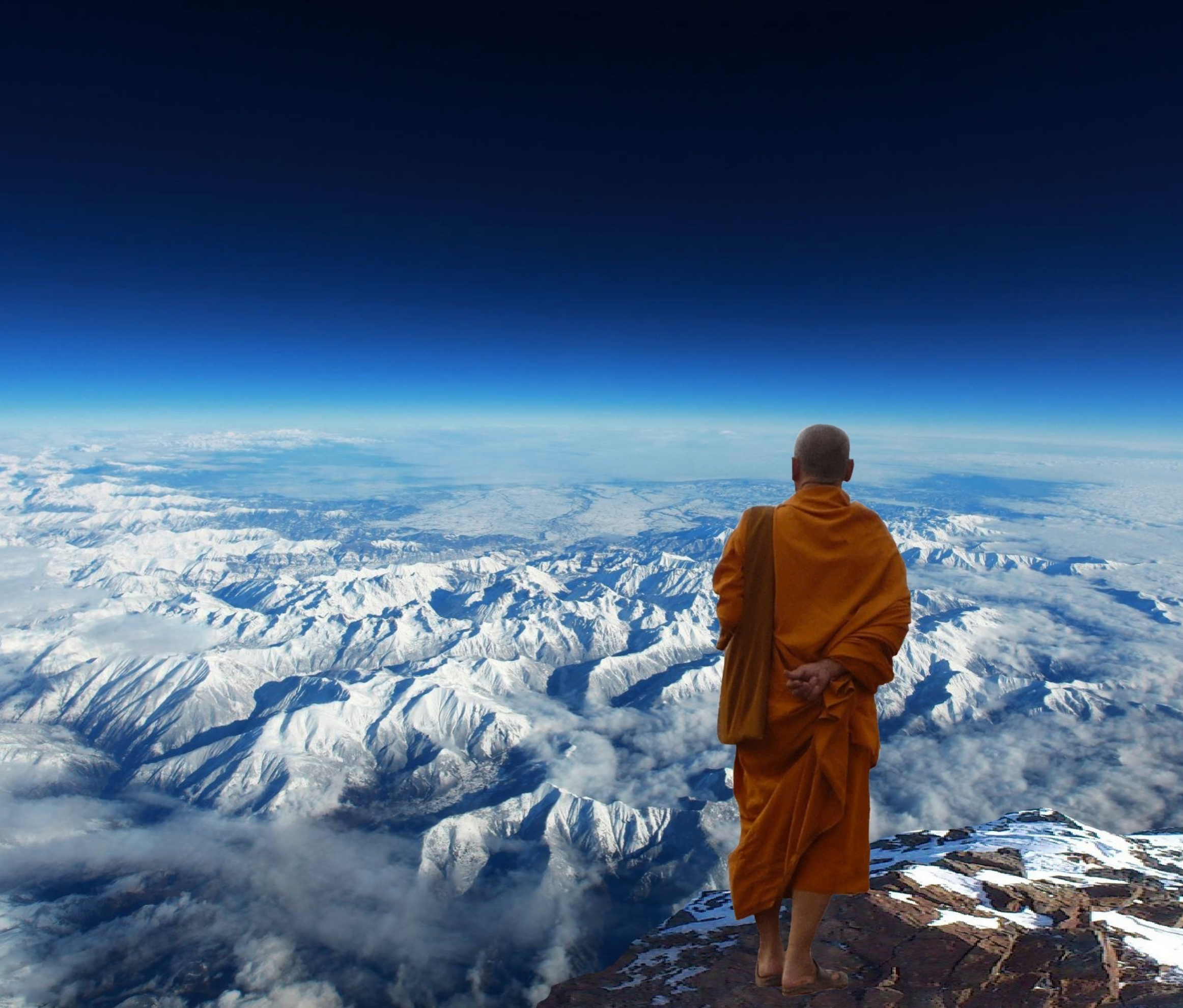The path that led me to my grandfather's doorstep in Shimla was paved with my mother's tears. Her marriage, which began with the sickly-sweet scent of alcohol masked as medicine on her wedding night, unraveled into a nightmare that would span fourteen harrowing years. In the volatile atmosphere of our Kashmir home, my father's drunken rages transformed a once-vibrant, educated woman into a shadow of herself. Each day brought new bruises, each year deeper scars, until a series of botched surgeries left her not just emotionally battered but physically broken. It was then, seeing their daughter drowning in this sea of torment, that my grandparents cast out a lifeline—not to her, but to me, their youngest grandchild.
Being the youngest, with a significant age gap from my siblings, I was chosen to escape the turmoil of our Kashmir home. And so I found myself transplanted to Shimla, where my grandfather—a revered saint and yogic master—carved out a space between heaven and earth. In him, I discovered a curious intersection of timeless wisdom and temporal limitations, his story a microcosm of human evolution itself, showing how far we have come and how far we have yet to go. In his person, the eternal and the temporal danced an intricate waltz—sometimes in harmony, sometimes in contradiction.
The path to my grandfather’s doorstep in Shimla was paved with my mother’s tears and her shattered dreams.
My earliest memory of his uncompromising nature blooms from a simple loaf of bread, like a lotus rising from mundane mud. As a ten-year-old whose legs seemed to barely skim the ground, I had unwittingly received a whole loaf for the price of half from our local baker—a windfall that felt like finding a treasure chest in my young mind. But my grandfather's discovery of this accident and my silent complicity triggered a response as swift as mountain lightning. The mandate was clear: I must return the excess bread and confess the error. For my little legs, the two-mile journey back to the baker's shop stretched like an endless pilgrimage, each step a battle between conscience and convenience. How tempting it was to simply dispose of the extra bread in some forgotten corner, letting it feed the birds rather than my shame. Yet this lesson in integrity was delivered with the certainty of natural law—as immutable as gravity, as clear as the Himalayan air that wrapped around our home.
Days later, during one of our walks through the town, my grandfather steered us toward the baker's shop. My heart quickened as we approached—was this a casual visit or something more? With me at his side, he asked the baker about my return of the bread. This wasn't the secretive verification I might have resented, but rather a lesson conducted in plain sight. The baker's warm smile and confirmation of my honest return filled me with an unexpected pride. My grandfather's method wasn't about catching me in potential deceit; it was about witnessing the fruits of right action together. This shared moment of truth-telling, with my tiny hand in his weathered one as we stood before the baker, formed the cornerstone of his teaching methodology—a bridge between the ideal and the real, built on the foundation of accompanied accountability rather than solitary surveillance.
His unwavering commitment to truth, like returning a loaf of bread, became the cornerstone of my moral foundation.
His Sunday communes were spiritual marathons where wisdom flowed like an endless river, as he unraveled the Bhagavad Gita's mysteries for eight uninterrupted hours. To a young boy whose universe revolved around play and discovery, these sessions initially felt like watching paint dry in a prison cell. Yet, within the fortress of his wisdom, something extraordinary bloomed like a night-blooming jasmine—slow, subtle, but inexorable. His unique interpretations of ancient texts began to seep into my consciousness like morning dew into thirsty soil, revealing how eternal truths could be viewed through fresh eyes. Each Sunday, as he peeled away layers of traditional interpretation like an archeologist uncovering ancient treasures, he demonstrated that even ancient wisdom could evolve and breathe anew.
Yet, like a tree that grows both toward light and within the constraints of its soil, he was a child of his time. His spiritual powers were extraordinary - people would travel from distant corners seeking his healing touch, and remarkably, he could heal them even from afar through his yogic mastery. I witnessed countless souls find relief from their afflictions through his distance healing, their gratitude flowing like an endless river toward our home in Shimla. Yet this same man, who could reach across miles to heal strangers, was also the father who merely attempted to patch his daughter's wounds through conventional yogic practices rather than uprooting her from her abuser—like trying to cure a poisoned well by blessing its waters rather than removing the source of contamination.
My grandfather's spiritual powers could heal strangers from afar but could not uproot the torment within his own family.
The paradox was stark: his healing energy could traverse physical distances to touch unknown lives, yet somehow couldn't bridge the philosophical distance required to break free from the social conventions that kept his daughter chained to her tormentor. This contradiction wasn't born of callousness but emerged from the limitations of his era's understanding, where a woman's matrimonial duties were seen as spiritual obligations, their fulfillment a path to higher consciousness—even if that path was paved with bruises and broken bones. While he had the wisdom to rescue me from that environment, he still attempted to heal my mother through yogic practices rather than liberating her from her abuser. By the time I reached Shimla, my mother had endured fourteen years of marriage, and as I later understood, had forgotten the very meaning of love by the time I was three. Yet the solution offered was spiritual bandages for wounds that required decisive action—a view we now recognize as the product of a time when society's evolution was still crawling toward the full recognition of women's dignity and autonomy.
His management of my childhood pleasures—the rationing of candies given to me by visitors, stored away in his trunk—reflected another aspect of his generational thinking. These small deprivations, which drove me to occasional theft and earned me punishment when caught, were rooted in ideas about discipline and character-building that belonged to his era. Yet even these restrictions carried seeds of wisdom about mindfulness and moderation that transcended their temporal context.
The paradox of his life was stark: a healer of distant souls, yet constrained by the moral framework of his generation.
Perhaps the most complex contradiction in my grandfather's character emerged in those moments when visitors would arrive at our home, seeking his spiritual guidance. These encounters would often transform into impromptu tribunals on my father's character, with my grandfather holding court. He would speak, with a saint's authority but a father's bitterness, about my father's failure to provide for my upkeep—each word dropping like a leaden weight in my young heart. The financial neglect became his favorite testimony of my father's moral bankruptcy, shared freely with strangers while I sat in uncomfortable silence, my presence both central to the story and somehow forgotten in its telling.
What struck me even then, in my child's understanding that would later crystallize into adult insight, was the peculiar mathematics of his moral ledger. My father's failure to send money registered as an unforgivable sin, worthy of public condemnation, while his years of violence against my mother—his own daughter—somehow earned a more nuanced theological accounting. The same voice that thundered about unpaid expenses would soften to philosophical resignation when speaking of my mother's suffering, cloaking brutal reality in the genteel garments of karma and spiritual duty.
This wasn't merely personal contradiction but a reflection of his generation's hierarchical moral framework. In his world, and indeed in the broader society of his time, a man's financial obligations stood as concrete markers of character—measurable, indisputable evidence of moral fiber or its lack. Meanwhile, a woman's suffering in marriage occupied a hazier spiritual territory, where earthly pain was often reframed as a crucible for spiritual growth, and endurance was conflated with enlightenment. My grandfather, despite his genuine spiritual elevation, remained bound by these invisible chains of generational thinking—where a daughter's bruises could be rationalized as spiritual challenges, even as a grandson's unpaid expenses were deemed evidence of moral collapse.
Enlightenment is not a sudden flood of truth but a gradual dawn that illuminates different horizons over time.
The irony of this selective moral bookkeeping carries a deeper revelation about human consciousness and its evolution. Here was a man who could perceive divine truth in ancient texts, who could unravel the mysteries of consciousness in his eight-hour discourses, yet remained partially blind to the glaring contradictions in his own ethical framework. His story suggests that enlightenment itself is not a sudden flood of universal understanding, but rather a gradual dawn that illuminates different horizons at different times—both in individuals and in societies.
In him, I witnessed both the power and limitations of enlightenment within its historical context. His spiritual elevation, impressive as it was, remained tethered to the social consciousness of his era. Yet this very limitation serves as a powerful reminder of humanity's progression. Each generation stands on the shoulders of its predecessors, seeing further not because we are greater, but because we have inherited their wisdom while transcending their constraints.
Today's understanding of human rights, gender equality, and personal autonomy didn't emerge from a vacuum—it grew from the soil of previous generations' partial wisdom. My grandfather's story illustrates how spiritual enlightenment itself evolves alongside human consciousness. His unwavering commitment to truth in matters like the bread incident remains as relevant today as it was then, while his approach to women's autonomy serves as a marker of how far we've progressed.
Each generation inherits the wisdom of the past while transcending its limitations, carving humanity's path forward.
As I reflect on his legacy, I see not just a saint or a grandfather, but a waypoint in humanity's journey toward greater awareness. His story reminds us that even our most evolved understanding today may appear limited to future generations. This recognition doesn't diminish his wisdom but places it within the grand tapestry of human spiritual evolution—where each thread, however imperfect, contributes to the emerging pattern of our collective consciousness.
Through my grandfather's wisdom and contradictions, I witnessed humanity’s journey—how enlightenment evolves, shaped by the truths we embrace and the limitations we strive to transcend.
The mists of Shimla still hold the echoes of his eight-hour discourses, and somewhere in the universe, a ten-year-old boy still walks four miles to return half a loaf of bread. These memories serve not just as personal history but as markers on humanity's path from what we were to what we are becoming—ever evolving, ever ascending toward greater understanding and compassion.

For additional context and a deeper understanding of the themes explored here, we recommend reading this post, which delves further into Avi's early life, his mother, and the background and context of the interplay between timeless wisdom and the evolving challenges of societal beliefs.




It is truly inspiring to learn about your journey and the experiences that shaped you. Appreciate your honesty and vulnerability. Thank you for sharing. 🙏🙏